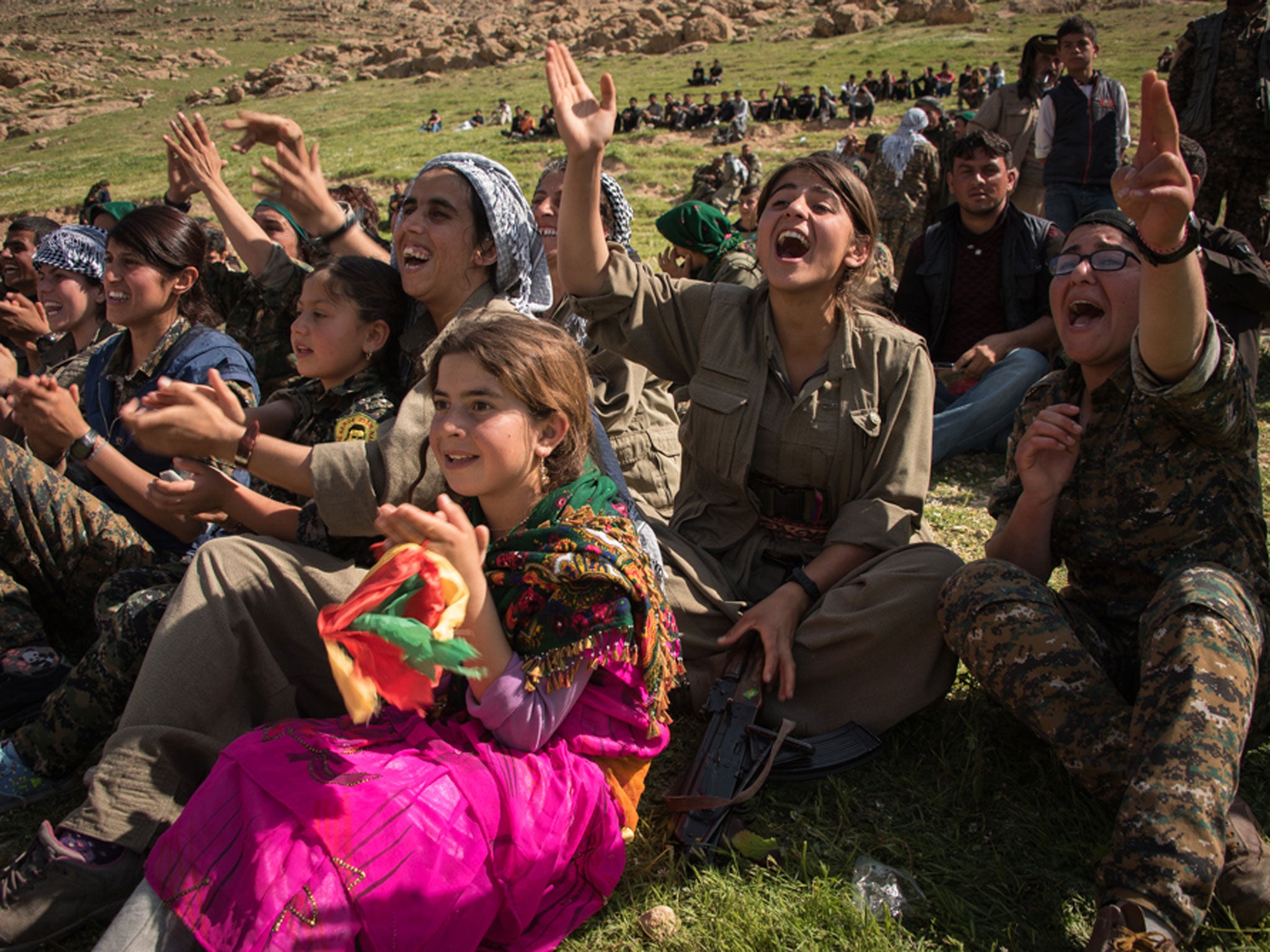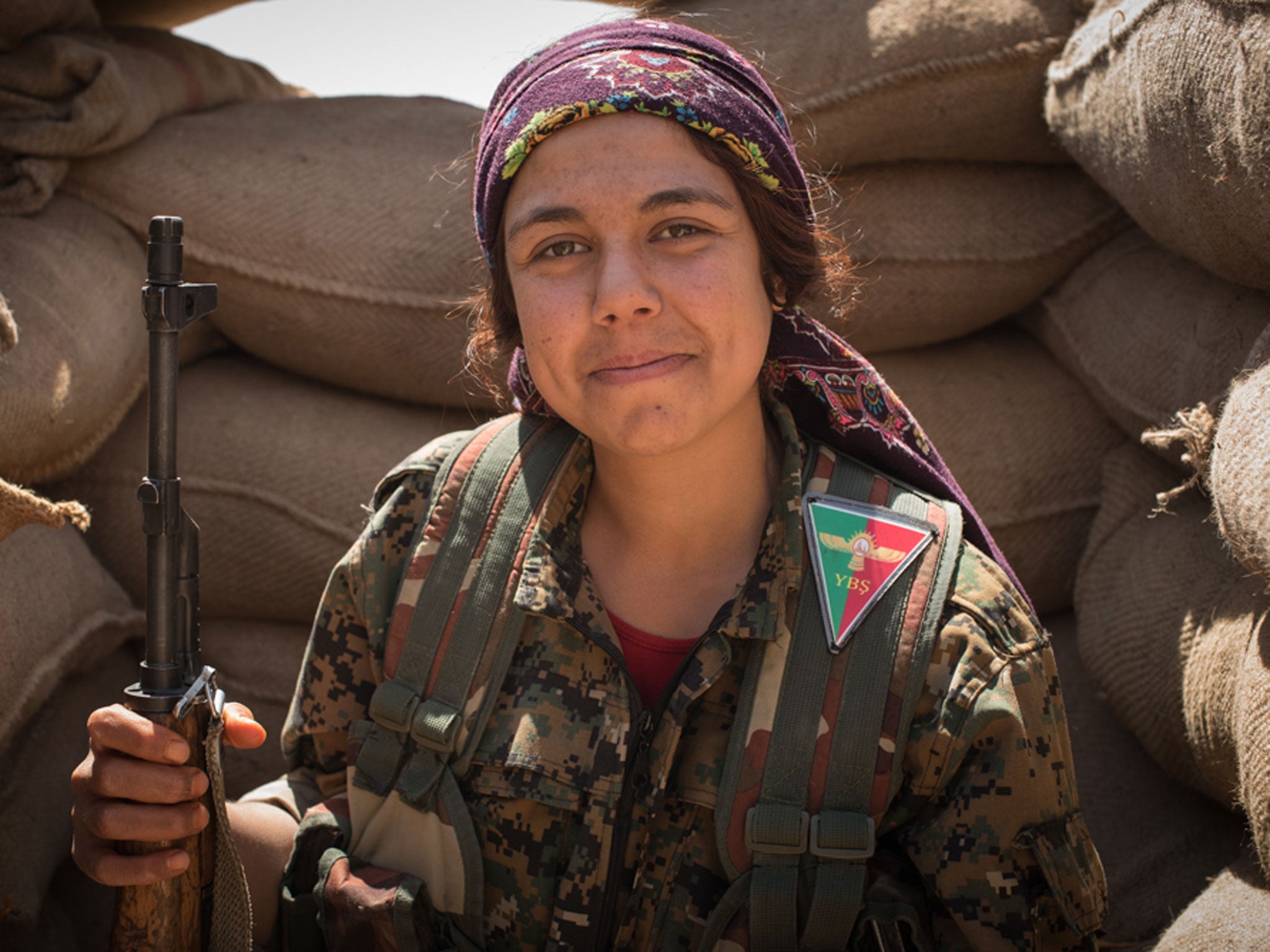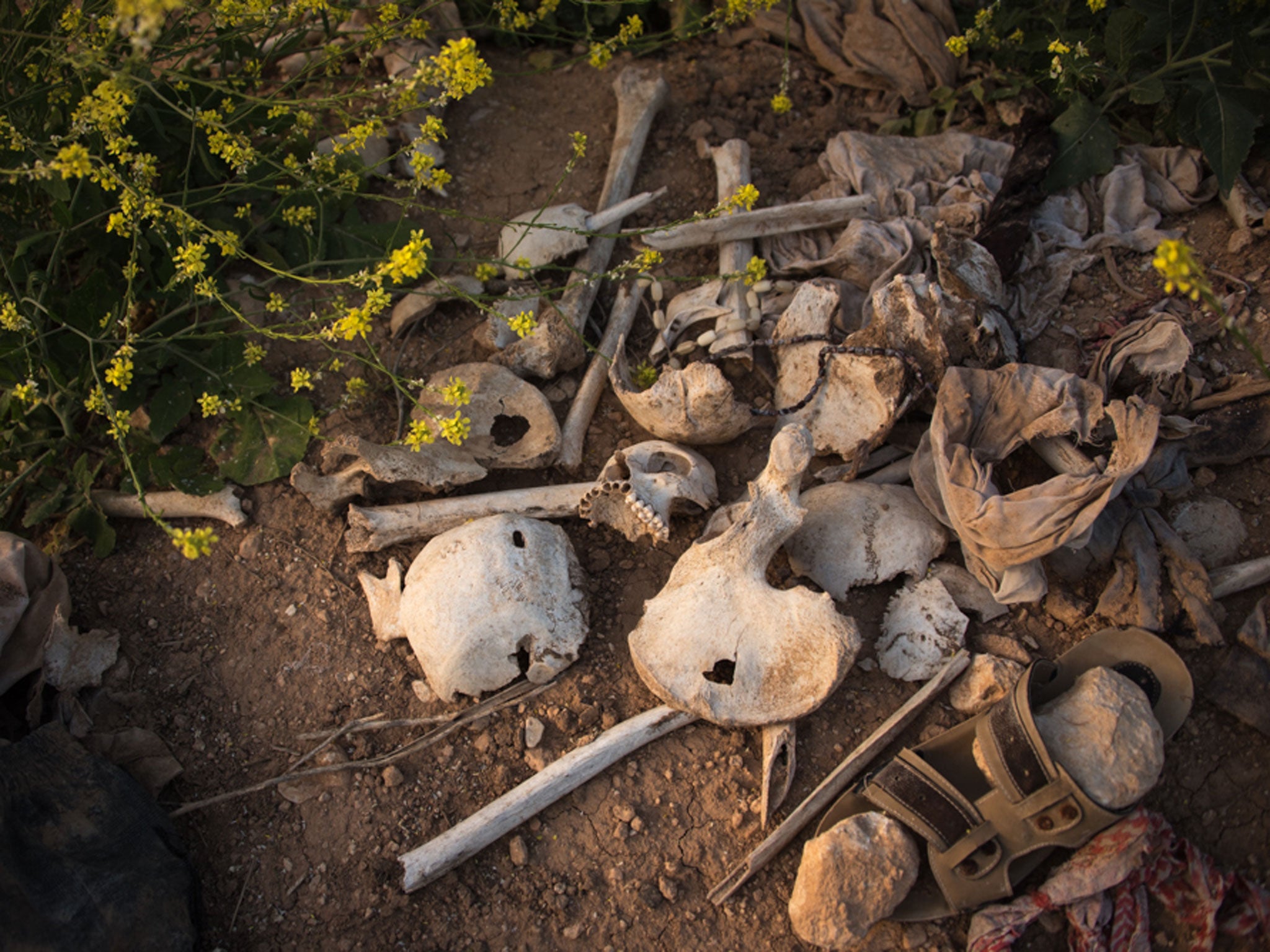Isis in Iraq: The female fighters that strike fear into jihadis - because they'll rob them of paradise
The all-women or 'jin' unit based in Kananshor village near Sinjar mountain is home to a rotating group of female fighters, who are particularly feared by Isis fighters, who believe that if they are killed by a woman they will not get to heaven

Your support helps us to tell the story
From reproductive rights to climate change to Big Tech, The Independent is on the ground when the story is developing. Whether it's investigating the financials of Elon Musk's pro-Trump PAC or producing our latest documentary, 'The A Word', which shines a light on the American women fighting for reproductive rights, we know how important it is to parse out the facts from the messaging.
At such a critical moment in US history, we need reporters on the ground. Your donation allows us to keep sending journalists to speak to both sides of the story.
The Independent is trusted by Americans across the entire political spectrum. And unlike many other quality news outlets, we choose not to lock Americans out of our reporting and analysis with paywalls. We believe quality journalism should be available to everyone, paid for by those who can afford it.
Your support makes all the difference."Raping the Yazidi women was part of [the Isis] plan. Destroy the women, destroy the culture,” Haveen, a 22-year-old Kurdish fighter says as she scans the road ahead.
Dressed in the green guerilla uniform synonymous with Kurdish armed groups, Haveen and her friend Denis keep watch, as two members of a unit of fighters within the YBS - a Kurdish civil defence militia. The all-women or “jin” unit based in Kananshor village near Sinjar mountain is home to a rotating group of female fighters made up of local Yazidi women and Kurds from nearby Turkey and Syria.
"I have been fighting for a long time now. I was on the frontline but I was injured by an IED [Improvised Explosive Device]," Haveen explains, pointing to a scar near her eye.
Denis, an energetic 30-year-old fighter from Turkey, said the women set up in Sinjar after Isis stormed the region in August 2014. Thousands of women were taken captive as Isis seized control of Sinjar in north-western Iraq, home to hundreds of thousands of members of the minority religion Isis has labelled as infidels. Isis abducted younger women and children and murdered men and older women. Those who could not flee were killed and buried in mass graves.
"After what happened to the Yazidi women it's important to have all women units here,” Denis says.

The YBS is an offshoot of the People's Protection Units (YPG) – the paramilitary wing of Syria's Kurdish Democratic Union Party (PYD). The YPG, who have been one of the most effective forces fighting Isis, say they are training Yazidi women to fight against any further incursions into Yazidi land.
“We have to support these women and help them to protect themselves. Isis took those women and children because they wanted to destroy their honour. We help train the Yazidi women to defend themselves and then they can control their own future. That’s why we’re here,” Denis says.
The women fighters live in separate quarters from the men, and romantic relationships are strictly forbidden. “We live separately but that’s the only difference,” Haveen says. “On the frontline we are all the same.”
The women’s base is adorned with pictures of female martyrs and brightly coloured carpets. It boasts a strategic vantage point, with a clear view of all cars entering the Yazidi village. Leaning out the window, Denis erupts into laughter when asked how successful the women’s units have been in the battle against Isis.
"They are so scared of us! If we kill them they can't go to heaven. It makes us laugh.... We make loud calls of happiness when we see them to let them know we are coming. That’s when they become cowards,” she says. Under the strict interpretation of Islam by Isis, if a fighter is killed by a women he cannot go to heaven, a fact the women clearly relish.
“I like that when we kill them they lose their heaven. I don’t know how many of them I’ve killed,” Haveen says as she takes a drag of her cigarette. “It’s not enough. I won’t be happy until they’re all dead”.
Three hours away in a predominantly Arab village close to the Syrian border, Kurdish fighters explain how they retook the village – which had been held by Isis - two weeks ago.
“We waited in the mountains for weeks... We lost 15 fighters, 14 men and one woman,” a young guerrilla who gave his name as Dilsan explains.
The YBS has attracted young fighters from neighbouring Syria.
“I came to kick Isis out of these lands,” an 18-year-old fighter named Rozaline explains. “I came for the Yazidi women. I saw them cutting women’s heads off in Rojava [what Kurds call the three Kurdish enclaves just south of the Turkish border in Syria]. I saw so many awful things. I don’t want to see any more cutting and killing”.
The former medical student left her studies to spend three months training with the YPG in the mountains in Syria. A recent recruit to the frontline - she arrived four days ago after Isis launched an attack to retake the village - Rozaline says she is there to avenge the Yazidi women.
“I must protect the Yazid women from those animals…. I hate them so much but I’m not afraid. Kurdish women sing when we go into battle. We know they are cowards,” she says, while the other ‘jin’ fighters let out the shrill celebratory uluation call they use in battle
The women are in high spirits - but Isis fighters are just a few kilometres over the horizon. Two suicide bombers recently drove a car loaded with explosives to within 500 metres of the group’s base. Fragments are scattered all over the village, as our YBS driver weaves his way through carefully through the sandy terrain littered with recently removed IEDs set by Isis.
“They came to destroy our base but one of our fighters shot them,” Amara a Syrian fighter says.

On the road back to Kananshor the car passes a militia base where Kurdish fighters are evaluating their last offensive against Isis. A small woman shouts into a microphone, assessing the group's strengths and weakness. Dozens of young guerrillas sit listening to the speech, a common occurrence after an Isis offensive.
Passing through areas of Sinjar mountain we see how the exposed bones of Yazidi women in mass graves are slowly being fenced off by members of the US-based Yazda group – an NGO which aims to support the Yazidis. In the nearby city of Duhok the International Commission for Missing People (ICMP) prepare to exhume the remains of those massacred by Isis, in order to build a genocide case - a gruesome task that has enlisted a team of international experts and forensic anthropologists.
Denis, who has already spent a large part of her life as a fighter, says protecting the Yazidi women is just one step in their plan to defend women’s rights globally.
"You and me, we are free, I am a fighter, you are a journalist but our sisters around the world - they suffer under the power of men, In Africa, in Asia, in Europe and American women suffer like the Yazidis. The fight of our women is a fight for all women," she says.
Join our commenting forum
Join thought-provoking conversations, follow other Independent readers and see their replies
Comments